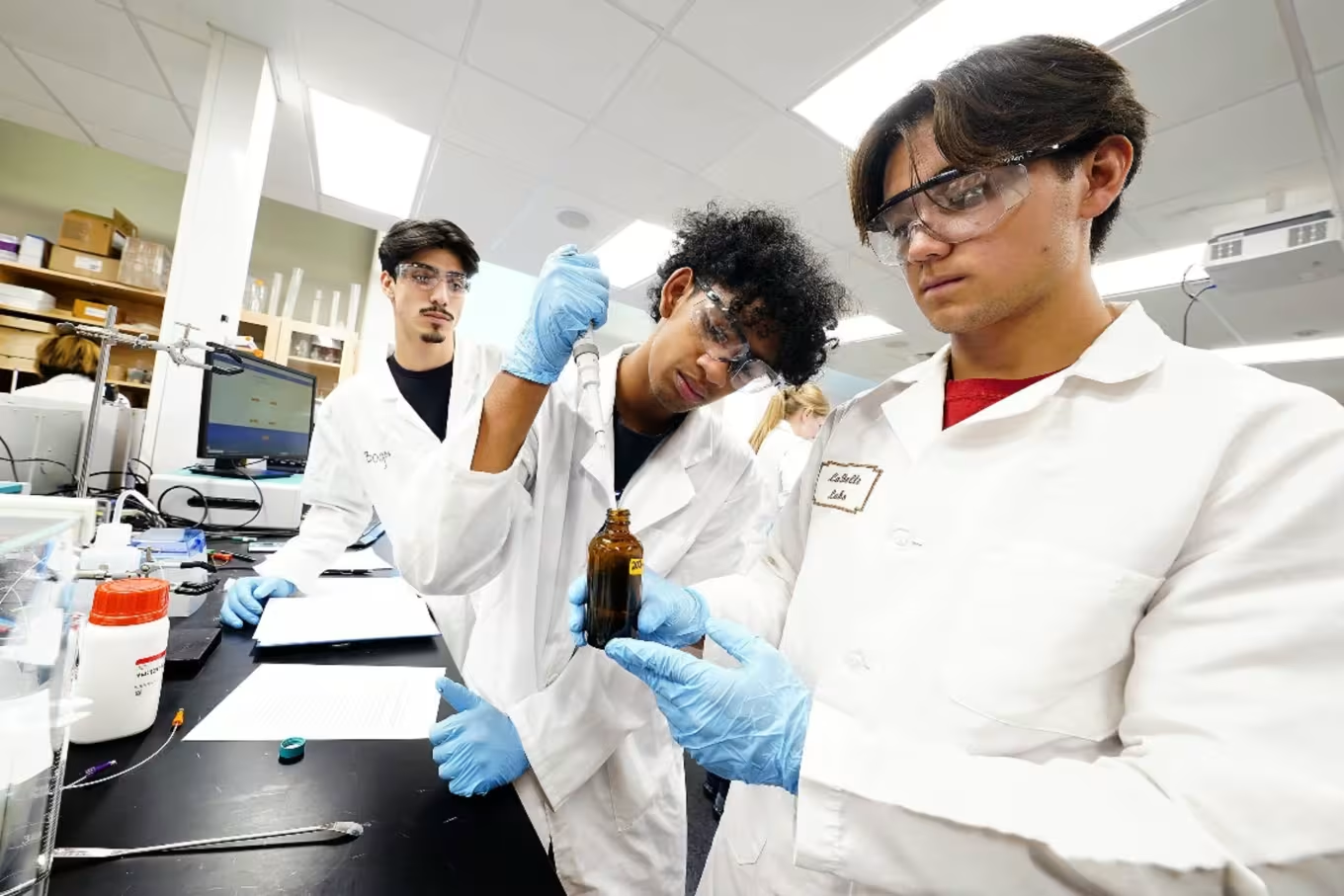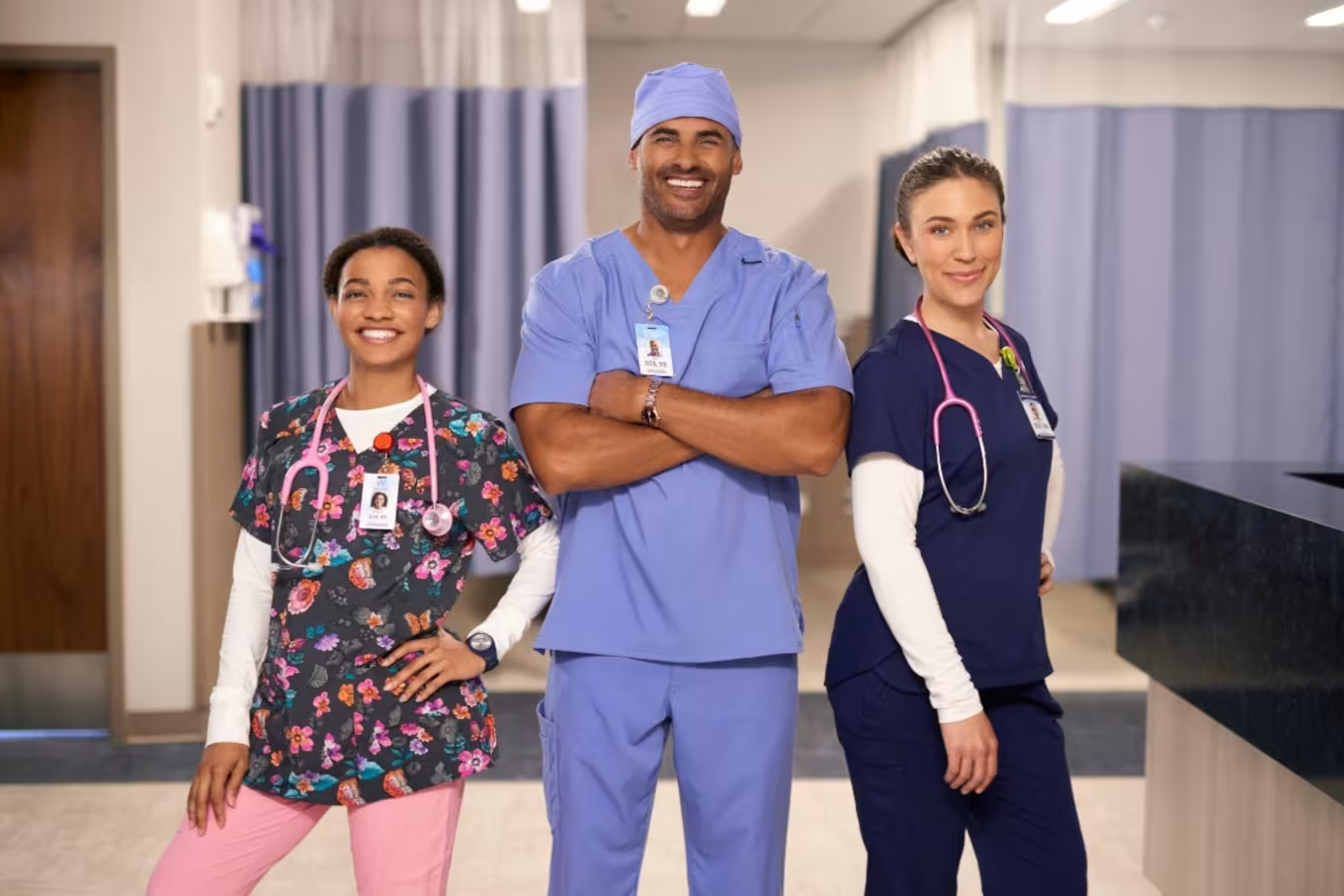Online Bachelor’s in Health Sciences Degree

Online Bachelor’s in Health Sciences Degree
journey today.
This Bachelor of Science (BS) in Health Sciences degree from Grand Canyon University is designed for working professionals in healthcare fields who are seeking to advance in their clinical discipline. Healthcare professionals who hold an associate degree or certificate in allied health professions may choose to return to school with the goal of tackling more responsibilities in the workplace or preparing for graduate-level education.
Some allied health professionals who may consider this degree include:

This degree can give allied healthcare workers the opportunity to improve their knowledge and skills related to patient care. At GCU, you may benefit from the emphasis on the Christian worldview in your studies. Patient care comes with the responsibility of understanding people’s spirituality and diverse cultural experiences. Graduates from this program are taught to recognize the necessity of understanding the patient experience and individualizing care according to the unique needs of each individual.
Upon graduating with your bachelor’s in health science degree, you may choose to stay in your current career or pursue a role that requires greater responsibility or more autonomy in the healthcare field. Healthcare is an ever-evolving field and is designed to enable you to address modern challenges and support patient care with integrity and professionalism.
Complete Your Health Sciences Online
GCU has designed this degree program to accommodate the needs of working allied health professionals. This means you can earn your degree online from anywhere. Our digital learning platform is designed to allow you convenient access to course materials and stimulating academic discussions with your peers on a flexible schedule that fits your current professional responsibilities. Our online learning community receives the same quality of instruction and curriculum as our on-campus students.
This Degree Is Offered Online
This degree is focused on four domains of content and study. These domains offer a comprehensive curriculum that encompasses a full range of healthcare skills and knowledge areas needed to pursue professional excellence or to enroll in graduate-level health sciences programs.
This bachelor’s degree in health sciences culminates in a capstone project. You will have the opportunity to research a topic that is immediately applicable to your professional growth and development. The research can also lead to action items that may be applied to your workplace right away.
These domains are:
Patient Care
You are expected to demonstrate an understanding of cultural awareness and be able to write formal and informal communications.
Leadership and Management
You are empowered to apply the principles of organizational behavior to work efficiently in healthcare organizations. You’ll have opportunities to set and achieve goals related to patient care and your own academic and professional progress.
Risk Management and Ethics
The understanding of ethical and legal issues are important skills for allied health professionals. You will examine your roles and responsibilities regarding professional behaviors and risk management.
Trends and Issues
You will be exposed to scientific communications and studies and to critically examine research and your own professional practices to implement new skills in patient care.
The bachelor’s in health science degree is a versatile choice that can equip you with a firm foundation of health science competencies that are applicable in a wide range of roles and workplace settings. As a graduate, you may go on to explore the role of a medical and clinical laboratory technologist, or similar position. You may decide to pursue clinical or nonclinical roles in settings such as:1
Some students who graduate with this bachelor’s degree may look to position themselves for potential career advancement into supervisory or leadership roles. A bachelor’s degree can also be a steppingstone to a master’s program in healthcare administration or public health.
16,800
Estimated new jobs for clinical laboratory technologists and technicians from 2022 to 20322
As an institutionally accredited university, GCU strives for academic excellence with the goal of graduating confident, workplace-ready individuals who are prepared to tackle evolving challenges in healthcare. The Higher Learning Commission has continually accredited GCU since 1968. The College of Nursing and Health Care Professions shares the university’s commitment to upholding the principles and standards established by our accrediting bodies.
Bachelor’s Degree in Health Sciences FAQs
If you’re considering enrolling in a health sciences program, browse through our frequently asked questions to learn more.
A health science bachelor’s can enable you to explore core competencies that could improve the quality of patient care you provide. After graduating, you may decide to position yourself to potentially pursue career advancement in the healthcare field. Job growth for clinical laboratory technologists and technicians is projected to grow by 5% from 2022 to 2032, according to the U.S. Bureau of Labor Statistics.2
The science, technology, engineering and mathematics (STEM) fields include many types of scientific exploration, including within health and medical sciences. In general, STEM careers may focus on innovation, such as emerging developments aimed at making the world a better or healthier place.1
This bachelor’s degree does not directly lead to a career in nursing. However, it does offer opportunities to develop a strong background in health sciences which may prove useful in a nursing career if you choose to later pursue a nursing degree that leads to nurse licensure.

Strive Toward Healthcare Excellence
A Bachelor of Science in Health Sciences degree can help improve patient outcomes. Learn more about this degree at GCU by filling out the form on this page.
- Claybourn, C. (2023, Aug. 25). A Guide to STEM Majors. U.S. News & World Report. Retrieved Feb. 23, 2024.
- COVID-19 has adversely affected the global economy and data from 2020 to 2022 may be atypical compared to prior years. Accordingly, data shown is effective September 2023, which can be found here: U.S. Bureau of Labor Statistics, Occupational Outlook Handbook, Clinical Laboratory Technologists and Technicians, retrieved Feb. 23, 2024
